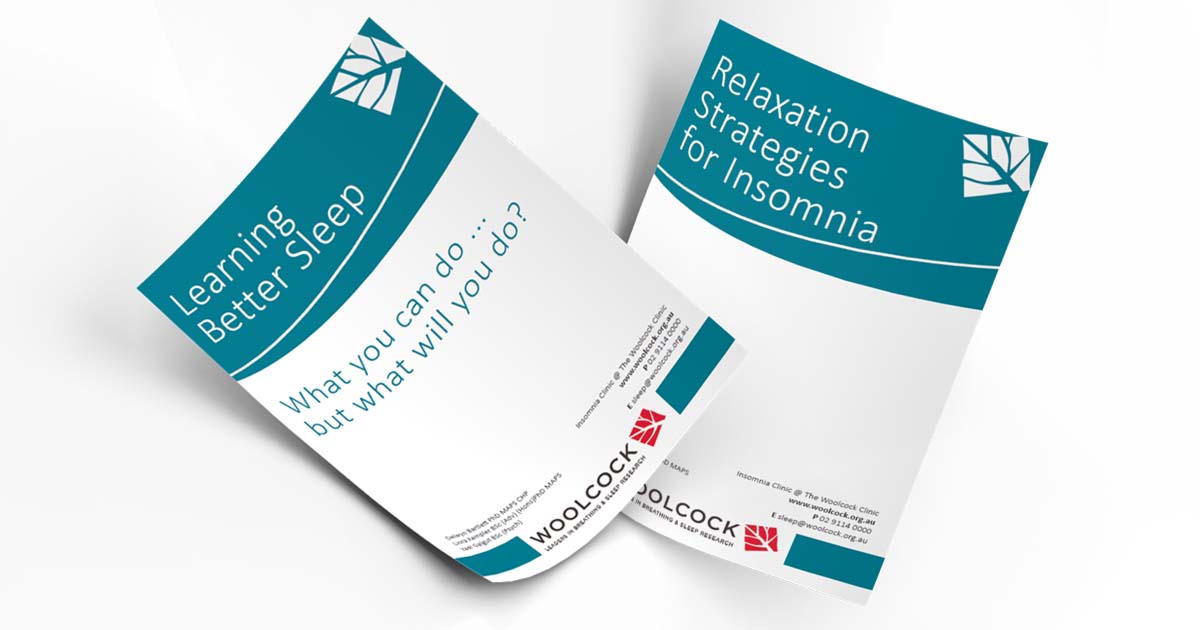The Woolcock Institute of Medical Research

Should you reset your sleep expectations?
The heightened profile of sleep issues in recent times has come with its downsides. We are in ways putting a huge amount of pressure on people's sleep, says Woolcock sleep psychologist, Associate Professor Delwyn Bartlett.
"The classic example has to be sleep with ageing. You're wearing glasses, you can't hear as well, your skin's not the same, and yet people expect their sleep to be the same as it was when they were younger, and it can't be."
The more we understand about normal sleep, Delwyn believes, the better we'll be at setting aside a reasonable time to give ourselves the opportunity to sleep.
Delwyn's advice is to reset your expectations and give yourself permission to not always sleep well. A bad night is a bad night, but it doesn't need to be a downward spiral.
Our sleep patterns will be impacted during any time of change or stress. "If you take on the burdens of the day with you to bed, you will keep yourself awake because the limbic system in the mid-brain is fired up always to be working on a survival mechanism. If you're giving your brain messages that there's danger – whether it's from worry, planning, whatever it is – you're going to be awake."
We only spend 20 percent of the night in deep sleep: we spend 45-55 percent in Non-Rapid Eye Movement (NREM2), or N2 sleep, which is relatively light sleep; and 25 percent in dreaming sleep (Rapid Eye Movement REM). In N2 sleep, we can move, we can easily be woken, and some people will even respond to a question.
Researchers have learned much about N2 sleep in the past 10 years. There have been several studies on its impact on memory and emotion, including ground-breaking work currently being done at the Woolcock Institute of Medical Research. Researchers have found that many people with insomnia, while registering as being asleep in a sleep study, if woken will state they feel as though they are awake.
"Their brain and body have adapted to their high level of arousal and hypervigilance. It's keeping them safe but they can no longer readily discriminate between light sleep and waking," says Delwyn.
"Sleep is all about survival – we probably have more light sleep due to evolutionary factors, because if we hadn't, the sabre-toothed lion may have eaten us up when we lived in caves."
Delwyn works with patients to reflect on why they feel they aren't getting enough sleep. "If you're getting say three to four hours of sleep when you first go to bed, your expectations around your sleep need to be more fluid," she says.
"The most important thing I believe in sleep is to say to yourself, this is my time, I can't do anything about what happened yesterday, I can't do anything about what may happen tomorrow. This is my time to let go, leave it alone."
So, when do you know that the answer to your sleep issues is to see a sleep psychologist rather than a sleep physician?
"Most GPs will send their patients to a sleep physician because they want to exclude sleep apnea or any other sleep disorder first. There's a bit of a paradox there though, because often middle-aged women, because they don’t necessarily snore loudly and stop breathing, can be seen as being anxious and having insomnia when they may have untreated sleep apnea. Then, if an individual has extremely high levels of anxiety or depression, they may need to see a psychiatrist as well."
Solving sleep issues is about finding the right strategies and treatments for each individual, says Delwyn, and often requires a team approach.
For more information and tips about the psychology of sleep, download our resources:
Find out more
- Find out how to book an appointment at the Woolcock Sleep Clinic
- Listen to Delwyn talking with Mary Labrie about Sleep and the Midlife Woman on the Women of a Certain Age podcast.










